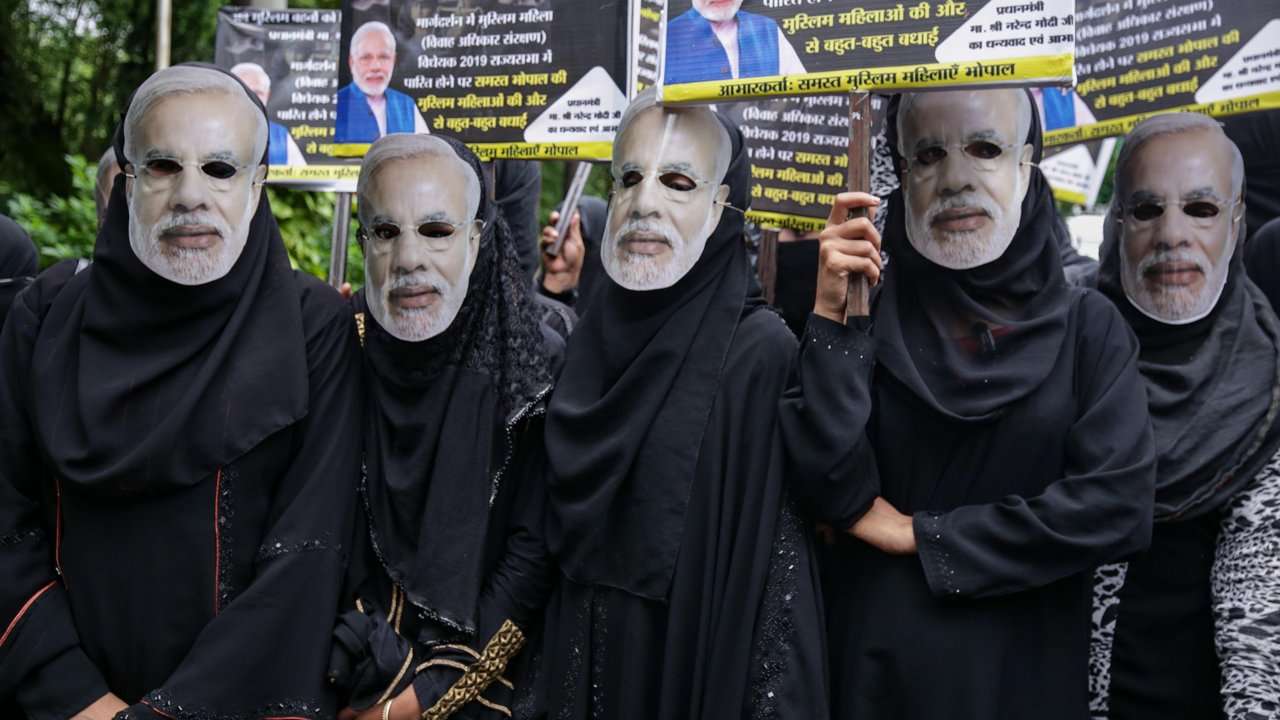
On July 30, the nation passed the Muslim Women (Protection of Rights on Marriage) Bill 2019 outlawing the practice of “triple talaq” or talaq-e-biddat. It was the passage of the Bill in the Rajya Sabha that morning which truly made history. The content of the Bill is of course of great significance too. The Bill makes it illegal for a Muslim man to divorce his wife by uttering the word “talaq” thrice, whether verbally, in writing, or electronically. If he does so, he is publishable with a jail term for up to three years.
The Bill, at long last, makes a barbaric and inhuman practice a criminal offence. India, unfortunately and unconscionably, has taken too long a time to do so. Those opposing the Bill, however, have been thoroughly exposed and discredited. Another far-reaching consequence of the legislation is that empowered Muslim women will now lead the reform within their own community.
PM Modi’s government had tabled the Bill as far back as 2017. It was even passed in the Lok Sabha, where the ruling BJP had a majority, but stalled in the Rajya Sabha, where the numbers did not favour the incumbent party. The earlier ordinance was to expire in January 2019. The government, therefore, introduced a fresh bill to replace it on December 17, 2018, in the Lok Sabha. After Modi-led BJP’s decisive victory in the 2019 general elections, the bill was tabled once again and passed in the Lok Sabha. Yet, the hurdle of taking it through the Rajya Sabha remained.
The BJP’s great strategic achievement was the swiftness and smoothness with which they achieved this feat. Congress leader Ghulam Nabi Azad, who fought the Bill tooth and nail in the Upper House, alleged subterfuge, but it was more like sour grapes. The suddenness of the Bill’s tabling in the Rajya Sabha took the already divided opposition by surprise. In the end, 99 voted in favour of it while only 84 against it could be mustered. Apart from the Congress, several other political outfits such as the Rashtriya Janata Dal (RJD), All India Majlis-e-Ittehadul Muslimeen (AIMIM), Biju Janata Dal (BJD), All India Anna Dravida Munnetra Kazhagam (AIADMK), and Indian Union Muslim League (IUML) had publicly opposed the Bill. But all of their MPs were not present to vote against it.
Four Congress members of the Rajya Sabha, Vivek Tankha, Rajiv Bishwal, Mukud Medhi, and Pratap Bajwa, defying the party whip, were absent. Sanjay Sinh, Raja of Amethi, and long-time Gandhi family loyalist, resigned from the Congress and Rajya Sabha. Ram Jethmalani (RJD), and Sharad Pawar and Praful Patel (NCP) also went missing. Lawyer-MP KTS Tulsi abstained, though he had moved amendments to the Bill. Dravida Munnetra Kazhagam (DMK)’s RS Bharathi was also absent as were two MPs of Mahbooba Mufti’s People’s Democratic Party of Jammu & Kashmir (PDP), though their leader has repeatedly opposed the Bill.
Four Bahujan Samaj Party (BSP) MPs, who opposed the Bill during the discussion, were not present when it came to voting. YSR Congress had also opposed the Bill, but their MP wasn’t present either. AIADMK, though a member of the NDA, had opposed the Bill in the Lok Sabha, but, conveniently for the ruling party, walked out, thereby refrained from voting. This was also true of the Janata Dal (United). Let’s see how the other parties fared: Telangana Rashtra Samithi (TRS)-- six MPs (absent); Samajwadi Party (SP)- five MPs (absent); Telugu Desam Party (TDP) - 2 MPs (absent); in addition, one MP each from Trinamool Congress (TMC), IUML, and Kerala Congress were also absent. Thirty missing members made the Bill go through in the 245 member House.
Though the numbers were against it 124 to 116, the Modi government won. Fortress Rajya Sabha was stormed, even if not subdued entirely. Such management of the numbers, if it can be repeated or augmented by more defections or resignations from other parties, has far-reaching consequences for India. Even tougher legislation, including Constitutional amendments, may be in the offing. The myth of Opposition unity has also been comprehensively shattered.
While it will no longer be “halal” to utter the word “talaq” thrice to secure a divorce, there has been a lot of unnecessary praise and virtue signalling over the Zomato tweet that “Food doesn’t have a religion. It is a religion.” Really? What about “halal” and “kosher” or “Jain” and “Hindu” meals? Not only is food labelled by religion in airline menus the world over, but even restaurants also have such nameplates in India. As a nation let us agree that food choices, whether motivated by religion, health, or personal beliefs are perfectly kosher. As to asking the religion, community, caste, or skin colour of the deliverer, well, that is “haram,” and had better be avoided.
The author is Director, IIAS, Shimla
Views are personal